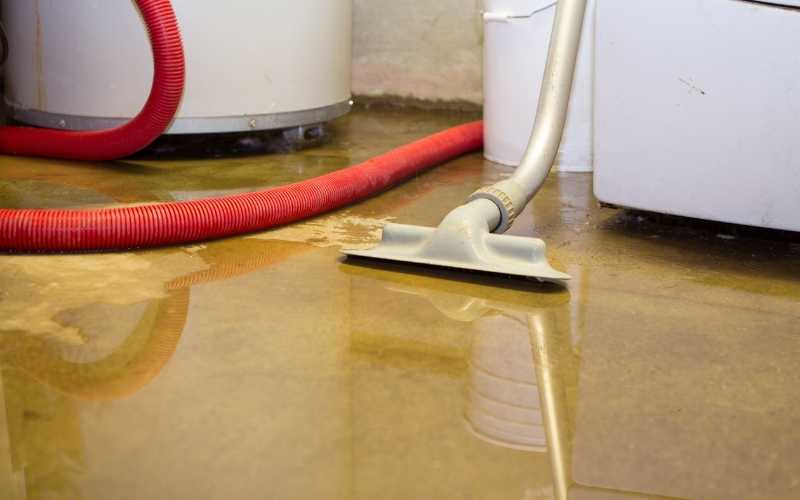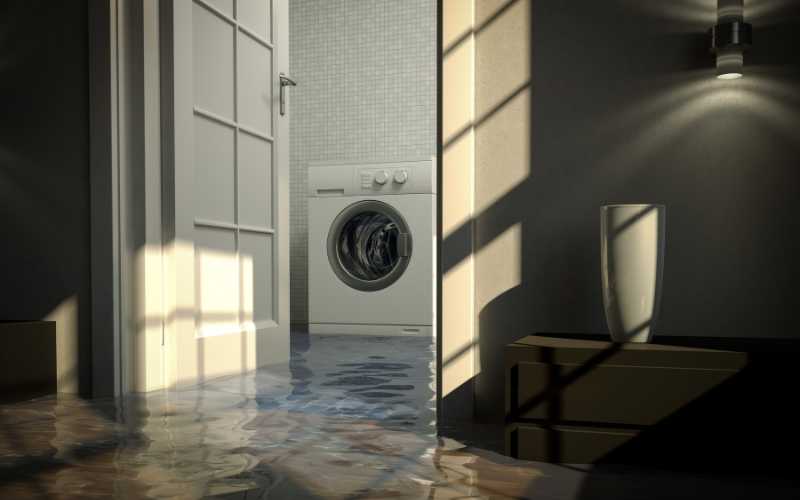Having a basement in your home is not a foreign concept to most homeowners; however, having one that isn’t affected by flooding might be.
Living in areas prone to flooding will get any homeowner with a basement thinking due to the damage that such can cause.
The 3 best flooring for basements that flood are rubber flooring, concrete flooring, and vinyl flooring.
This is not to say all flooring materials damage, but knowing which do and which don’t is key to enjoying your basement space.
Since flooding entails that the water might not dry out that same day, using flooring that can withstand it is a preventive measure.
Related: How Long Does it Take Carpet to Dry After the Flood
The Best Flooring for Basements That Floods
Table of Contents
It can be frustrating having your basement constantly flooded and then having to cover for the damages it caused. Here are some other options for flooding that will give you rest of mind if floods come:
Rubber Flooring
Honestly, rubber is a bit underrated when it comes to flooring. It is becoming more popular, but it should have gotten more popular than this due to its waterproof nature.
It keeps your basement floor from damage from the water, like mold. Rubber offers a host of benefits. Another benefit is the grip you get as you walk, so it ranks no one on our list of the best flooring for basements that flood.
This prevents home accidents caused by falling. Asides from its grip, your feet that soft landing since rubber is not as hard a material.
Read: Water Coming in Basement Where Walls Meet Floor
Concrete Flooring
Concrete flooring is like the old pal that came before the rest and is still standing strong. It’s almost the opposite of rubber in feel and texture.
Concrete is another got-go for basement flooring for its durability and many other reasons.
Homeowners with basements that flood can install a concrete floor in the dry season and enjoy it always. A concrete floor is equally easy to maintain as it only needs sweeping and mop drying.
Many people shy away from concrete when it comes to flexibility in design. Are we right? But take a step back. There are ways of polishing concrete now that it’ll speak to your design senses.
Vinyl Flooring
Now, the disadvantage concrete has is the exact opposite of Vinyl. Vinyl flooring has a vast amount of designs.
The design options range from planks to rolled sheets or tiles. Even options come as one sheet and are stuck on with adhesive.
When it comes to basements that flood, the roll sheets or full sheets are preferred over the planks. The planks are held together by tongue and groove ends through which water can pass.
The roll sheets are held down by adhesive to keep them in place. When it comes to maintenance, vinyl maintenance is easy to do. Be careful that the floor isn’t submerged in water for too long as some water can sip in then.
Ceramic Tile Floors
This particular option is one of the best for flood-prone areas. You can rest assured that this solution is long-lasting, and you’ll get to use it without fear of damage.
This option also has many options fur a variety ranging from size to shape and pattern. A valuable tip is that ceramic tiles are excellent for water coming upwards, but any water coming out underneath it can pose a challenge.
Ceramic tiles may be more expensive than the others listed here, but it is worth it as even extensive periods submerged underwater do not get your basement floors ruined.
Read: Flooring Options For Dirt Basement Floors
Conclusion
Did you formally have fears concerning your basement floor? We are sure your doubts are quelled now, and a brilliant solution has come up for you.
Not all floors can withstand flood, but some can, and you can always get those for your basement that floods.
We wrote this article about the best flooring for basements that floods to help give you guidance when faced with a flood-prone basement.
We hope you found it helpful and informative. If you did, please share it across your entire social media pages.

